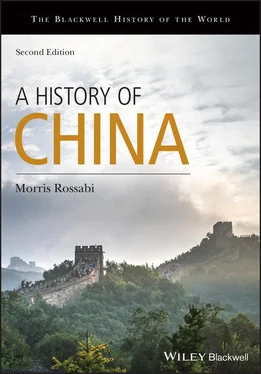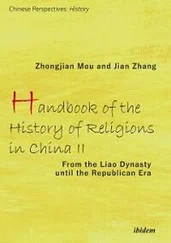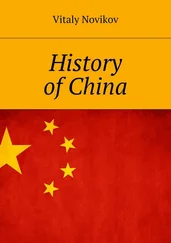Mo Zi’s advocacy of universal love also would not challenge the existing social hierarchy: it was simply a vehicle for ameliorating conflicts between the strata. He criticized the Confucian particularistic doctrine of different levels of devotion, which emphasized love for the family above all else, with less emphasis on affection for the clan and other Chinese who were unrelated. His more generous vision encouraged loving Chinese men and women of other families and even non-Chinese as heartily as one loved one’s parents or family. Such unselfishness countered the particularism of mere love of family and of filial piety. However, Mo Zi undercut some of the credit he might have secured for this remarkable and benevolent concept by justifying it on simplistic grounds. He stressed that universal love would result in material benefits and could readily be mandated by forceful rulers. The idealism and innovation of this grand conception did not emerge in Mo Zi’s practical description. He failed to portray a vision that could galvanize and inspire his followers.
He and his disciples linked their championing of universal love to their condemnation of offensive warfare. They encouraged fellow Mohists to support and to come to the defense of weaker states threatened by bellicose states. Manifesting their love for the less powerful and the endangered, they sided with the weak and ultimately became skilled in warfare, earning a reputation as adept military strategists. Yet Mo Zi surely did not have this in mind when he first expounded his views about universal love and the destructiveness and wastefulness of warfare.
Another questionable ramification of his views related to his attempted justification of his moral order. He repeatedly appealed to the supernatural as a force that sanctioned his vision. Believing that spirits and ghosts could intervene in human affairs, he asserted that they could punish or reward behavior. The Supreme Spirit was the dominant deity, the progenitor of all creatures, which worked its will through its earthly representative, the Son of Heaven. Mo Zi, seeking to induce fear, depicted the Supreme Spirit as awesome. This turn to the supernatural did not jibe with the developing rationalism of this era and may have alienated potential adherents.
Mohism’s appeal was also undermined by other flaws, one of which was confusion concerning the audience for Mo Zi’s views. He was critical of the lifestyles and morals of the aristocracy and many of the ideas he expounded, including his abhorrence of waste and his utilitarianism, reflected lower-class or middle-class attitudes. Yet he devoted much of his career to appeals to the aristocracy, which contributed to a blurring of his message and confusion and contradictions in his philosophy. Moreover, Mohism was too simplistic for many aristocrats. Mo Zi’s repeated injunctions against waste and luxury did not endear him to the elite, nor did his references to ghosts and spirits mesh with the growing rationalism and secularism of the age. Similarly, his emphasis on universal love clashed with the Chinese esteem of family. Finally, his utilitarianism did not offer a systematic, cohesive morality. The repetitiousness of his style also diminished its wider appeal. In short, Mo Zi did not identify sufficiently with any specific group or class in China, nor did he take into account Chinese sensitivities and sensibilities.
The Legalist thinkers, who have been given credit for the Qin dynasty’s success in unifying the country (see Chapter 3), have been termed “un-Chinese” because of the harshness of their philosophy and the severity of the sanctions they proposed to enforce their views. Reacting to the crises of fragmentation and disorder, the Legalists prescribed policies aimed at unity and centralization. These objectives were not in themselves objectionable; however, the methods of implementing them eventually provoked unrest. The Legalists’ doctrines had become so discredited that, once the Qin dynasty fell, no statesman in Chinese history who wished to be successful could propound the philosophy, though it continued to influence Chinese governmental practices.
Most students associate Legalism with the Qin, but the development of its principles predated the rise of that absolutist dynasty. According to earlier sources, Guan Zhong (d. 645 BCE), a minister of the state of Qi, had attempted to persuade his ruler, Duke Huan, to initiate policies that would strengthen the state. In a work entitled Guan zi ( Master Guan ), which actually appears to have been compiled several centuries later, Guan Zhong’s later disciples described the institution of the ba (hegemon), a powerful figure who imposed peace and stability on the fractious states of his era in the name of the Zhou king, whose survival he perceived to be essential. He proposed the granting of authority to a ruler who had a mandate to strengthen the military, to enact laws governing an extraordinary range of behavior, to promote a growth in population (since a large population was said to be an indication of state power), and to enrich the state through government monopolies on salt, iron, and wine and other fiscal practices. Guan Zhong’s realistic statecraft, as well as his emphasis on law and a powerful state with great influence over its subjects’ lives, presaged and perhaps influenced the Legalist thinkers of later centuries.
Like Guan Zhong, Wei Yang (d. 338 BCE) or Gongsun Yang (more commonly known as Lord Shang) was a political actor as well as a principal exponent of Legalism. Born in the state of Wei, he subsequently shifted his allegiance to the state of Qin, served Duke Xiao, and helped to subjugate his own native land. Later sources credit Lord Shang with unifying and centralizing the “feudal” lands of Qin and with curbing the nobility’s authority. The centralized state of Qin appointed officials to enforce its will on the population. He argued that peasants should own their land and should be obligated to pay taxes directly to the state rather than turning over a share of their produce to “feudal” nobles. A state with full granaries would be both prosperous and powerful. Lord Shang also proposed that the population be organized into groups of five or ten men who would be encouraged to denounce subversives or those among them who challenged the state.
Lord Shang relied on law ( fa ) to regulate society. In this turbulent time, he believed in a strong state that would conquer the rest of China and ensure stability and peace. The state needed to be prosperous and seemingly invincible to achieve this goal, a task that entailed control of its people. A system of rewards and punishments had to be instituted in order to enforce state power. The state’s interest would prevail over the individual’s rights and concerns, and obedience to the law was the single most important value to be impressed upon the people. The values associated with Confucianism (righteousness, benevolence, and wisdom), as well as the rituals of music, dance, and filial piety, were irrelevant, if not harmful. Lord Shang was unabashedly amoral, for he believed that the Confucian virtues would create a weaker state. He proposed a system that would enable governments to be the absolute masters, and argued that laws were essential in restraining the evil and depraved nature of mankind. Though the rare gifted man could overcome the general depravity, laws and administrative methods could not be abandoned if the state wished to avert chaos. Most men could not control their evil ways without the sanction of harsh punishments to keep them in line. Thus, the ruler needed to enforce the laws evenhandedly and punish transgressors from any and all classes. For the first time, the nobility would be treated in the same way as the rest of the population and would be liable to the same sanctions as ordinary people.
Читать дальше












